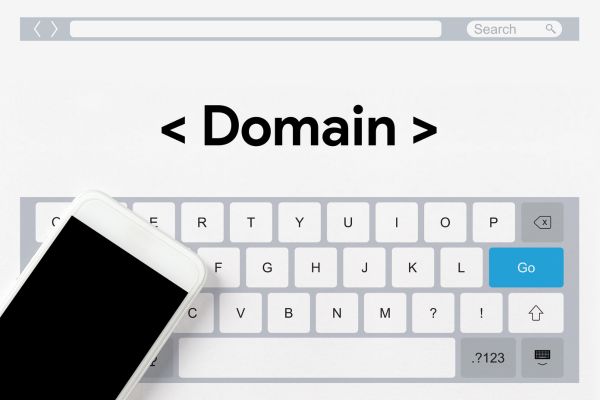In the rapidly evolving digital landscape, choosing a domain name is one of the most important steps you’ll take when launching a website. It’s the first impression users will have of your brand, and it plays a crucial role in how your site is perceived, remembered, and ranked in search engines. Whether you’re starting a blog, an online store, or a business portfolio, your domain name can significantly influence your success online. Therefore, understanding the best practices and strategies for selecting the right domain is essential.
Why Choosing a Domain Name Matters
Your domain name is more than just a web address—it’s your online identity. A well-chosen domain name enhances your credibility, builds brand recognition, and makes your site easier to find. On the other hand, a poorly selected name can confuse visitors, diminish trust, and even harm your search engine rankings.
From an SEO perspective, choosing a domain name that aligns with your brand and industry keywords can help your site appear more relevant to search engines. It’s not just about finding a name that sounds good; it’s about creating one that performs well in a competitive digital marketplace.
The Role of Branding in Domain Selection
When you begin the process of choosing a domain name, you need to consider how well it reflects your brand’s mission and voice. A domain that resonates with your target audience can create an emotional connection, which is a powerful marketing tool. Think about the major websites you visit daily. Chances are, their domain names are short, memorable, and meaningful.
Consistency across your digital presence is vital. Your domain should match or closely align with your business name or personal brand. This ensures that customers can easily associate your website with your products or services. Additionally, a branded domain name is easier to promote through word-of-mouth, advertising, and social media.
Avoiding Common Domain Name Pitfalls
One of the most common mistakes people make when choosing a domain name is opting for something too complicated. Names with hyphens, numbers, or unconventional spellings may seem unique, but they often lead to confusion. When users can’t remember how to spell your domain or struggle to pronounce it, they’re less likely to return.
Another trap is selecting a name that’s too closely tied to a trending keyword or phrase. While this might offer short-term SEO benefits, trends fade quickly. A timeless, brandable name will serve you much better in the long run. Moreover, steering clear of names that resemble established brands will help you avoid legal issues and potential trademark disputes.
Balancing Creativity and Simplicity
Striking the right balance between creativity and simplicity is key when choosing a domain name. While it’s important to stand out, overcomplicating your domain can backfire. Think of your domain as a storefront sign; it should be attractive and readable from a distance.
Opt for words that are easy to type and remember. This not only helps your visitors but also improves the likelihood of direct traffic—users typing your domain directly into the browser. If your desired domain is unavailable, consider subtle variations that maintain clarity and brand recognition without compromising user experience.
The Importance of Domain Extensions
In the early days of the internet, “.com” was the default choice for most websites. Today, however, a wide variety of domain extensions are available, ranging from “.org” and “.net” to more specialized ones like “.design” or “.store.” While these alternatives offer creative opportunities, it’s still worth considering how users perceive different extensions.
A “.com” domain continues to be seen as the most professional and credible option. However, if you’re building a niche website or a local business, a specific extension can enhance relevance. For example, a nonprofit might benefit from a “.org” domain, while a design agency could stand out with “.studio.” When choosing a domain name, the extension should align with your brand’s purpose and audience expectations.
Checking Availability and Ensuring Uniqueness
Before you commit to a domain name, it’s critical to verify its availability. This goes beyond just checking if the domain can be registered. You should also investigate whether similar names are already in use by other businesses, particularly competitors. This prevents confusion and protects your brand identity.
A unique domain name not only strengthens your brand but also minimizes the risk of copyright or trademark infringement. Additionally, consider securing related domain names and redirecting them to your main site. This strategy helps you capture traffic from common misspellings and protects your brand from imitators.
SEO Considerations When Choosing a Domain Name
Search engines use a variety of factors to determine a website’s relevance and authority. While domain names aren’t the sole focus, they do contribute to your site’s overall SEO profile. A domain that includes relevant keywords can signal to search engines what your site is about, potentially improving visibility.
However, keyword stuffing—overloading your domain with exact-match phrases—can appear spammy. The key is to integrate keywords naturally and focus on creating a name that’s both brandable and contextually appropriate. Also, the age of a domain and its history can influence rankings, so be cautious if you’re buying a pre-owned name.
Future-Proofing Your Domain Choice
When choosing a domain name, it’s important to think long term. What works for your current project should also serve your goals as your brand evolves. Avoid being too specific about a single product, service, or trend unless you’re sure it will remain relevant in the future.
Scalability is essential. If you anticipate expanding your offerings or entering new markets, a flexible domain name will give you room to grow. This forward-thinking approach saves you from the hassle of rebranding later, which can be costly and disruptive.
Registering and Securing Your Domain
Once you’ve settled on the perfect domain, the next step is registration. Choose a reputable domain registrar and consider purchasing your domain for multiple years. This not only secures your name but may also provide slight SEO advantages by signaling long-term intent.
Security should also be a priority. Protect your domain with privacy features to shield your contact information and prevent unwanted solicitations. Enable domain locking to prevent unauthorized transfers, and make sure your account has strong authentication settings.
Conclusion: Building a Strong Online Foundation
Ultimately, choosing a domain name is a foundational decision that impacts every aspect of your online presence. It requires a thoughtful blend of creativity, strategy, and practicality. By focusing on brand consistency, user experience, and long-term vision, you can select a domain that enhances your credibility and supports your goals.
Remember, your domain is more than a technical requirement—it’s the digital face of your brand. Investing time and effort into choosing the right name will pay dividends in traffic, trust, and growth. As you take this step, aim for a domain that not only captures your brand essence but also leaves a lasting impression on every visitor who types it in.



